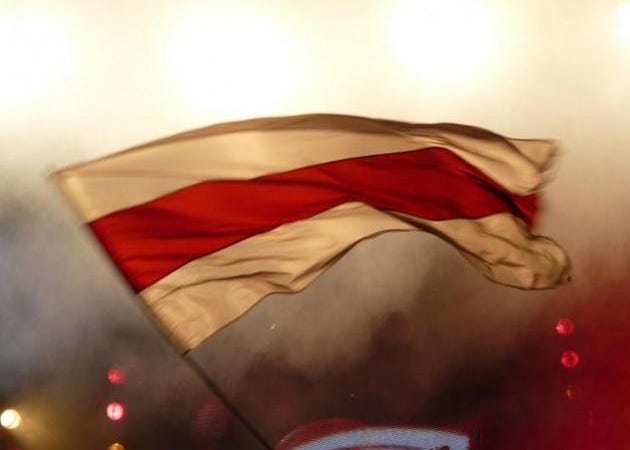The unexpected good news
The news that brought hope to my Belarusian heart and the story of the Belarusian fight for freedom.
I’m Belarusian. My family fled their home and became refugees after the crackdown on the pro-democratic protests in 2020 and the repressions that followed. Recently, one of my closest friends has been sentenced to years of home confinement for opposing the dictatorship. I know many people who are either my acquaintances or acquaintances of my friends who were imprisoned on political charges. I cannot go home, and I don’t know if I ever could. So, when I read the news that Belarusian opposition leader Siarhei Tsikhanouski was released from prison, I was in shock. I couldn’t even dream that Lukashenko could release one of his main opponents who inspired millions of Belarusians to fight for freedom. It filled my heart with a wild mix of emotions: relief, hope, joy, but also immense sadness.
Suddenly, all the memories from five years ago, when Belarusians tried and failed to overthrow the Lukashenko regime, came flooding back. It was August 2020 again, and I was frantically checking the news every minute, watching the revolution unfold in my home, worrying about my family, friends, but also for the first time in my life feeling Belarusian.
2020 was the birth of a national identity for millions of Belarusians, including myself. It seemed as if people woke up from an enchanted sleep and realized that they deserve to be free. People took to the streets in every little town and even villages. It was beautiful and powerful. Everyone believed that they could defeat the dictator by protesting peacefully, only the dictator didn’t want it to be that way.
When Siarhei Tsikhanouski, one of the most popular opposition candidates, was denied entry to the election race by Lukashenko’s order, he asked his wife, Sviatlana, to run for president instead. She was a stay-at-home mom and had two little kids. Her husband challenged the dangerous and cruel dictator who was in power for more than 20 years. She had never been a politician before. What did she do? She ran for the presidency and confronted Lukashenko.
Two months later, Tsikhanouskaya’s husband was arrested on fabricated charges and thrown into prison. Yet, she continued the race. Lukashenko thought that no one would vote for a woman, and he publicly mocked and belittled her. However, he underestimated her strength and the desire of millions of Belarusians to be free from oppression. Sviatlana Tsikhanouskaya won the election. When Luskashenko realized that he had lost, he falsified the results and pompously claimed his victory. After that, hundreds of thousands of people went to the streets.
The protests lasted for months, but, unfortunately, with Russian help, Lukashenko managed to suppress them. People were abused and tortured in unimaginable ways. More than 30,000 were jailed, and millions fled. Svitlana Tsikhanouskaya was forced to live in exile. Her husband was sentenced to 19 years in prison, but everyone knew it was a life sentence.
Years passed by, and the world forgot about Siarhei Tsikhanouski. No one believed that he would ever walk free, except for his wife. She refused to give up and continued advocating for Belarusians. She carried her husband’s portrait to every meeting, to every news conference, to every room. Last weekend, her husband was freed, and she hugged him for the first time in five years. Siarhei Tsikhanouski became unrecognizable after years of torture and starvation. Yet, he didn’t lose his spirit. His release and survival brought hope that Belarus will survive and will be free, too.

A poem by Kaciaryna Vadanosava, which I translated from Belarusian to English:
Waltz of Akrestina* 2022 Right now, everything is so simple: Here is evil, and here is good. It doesn’t matter how tall you are, Or how many years old. It doesn’t matter: a boy, a man, A woman or even a child. The flag of your motherland Is embroidered with your blood. Do you hear? From every corner, Like wolves, we are being chased. They want us to never find refuge, To weaken us, to erase. Our tears are their food. Our bones are their pus. They trample, stab, and abuse, In order to stop our fight. Their dirty black soles Are crushing down our teeth. But we’re smiling with bare gums, Scratching throats to get rid of fear. Even if you gouge out our eyes – We are going to walk on sound. In the very last seconds of night, We will hear you screech and shout. You thought that we were weak, You thought you would wipe us out. Look at us – we are still alive. Even death makes way for us. We are furrows on a plowed field, We are millions of little grains. Freedom, life, and the strong will will continue to grow from them. *Akrestina is a prison in Minsk where the majority of Belarusian protestors were held and brutally tortured.
Listen to this poem in Belarusian:
Email: daryazorka@substack.com
Shop my art on Etsy
Watch the “20 Days in Mariupol” documentary
Watch Frontline PBS documentaries on Ukraine
Donate to help Ukraine: UKRAINE DONATION GUIDE
Gift a subscription to From My Heart ♥︎




Good news indeed. Very interesting to learn about Belarusian identity and the national awakening of 2020. I can’t wait to see Belarus and all the other people living under Russian oppression finally liberated and free.
Thank you, Daria, for your moving letter. Years ago our family hosted Belarusian children (following the Chornobyl disaster). I have often wondered what became of them, and again so, reading about the 2020 uprising and Lukashenko's actions before and since.
Like I do for Ukrainians, I hope the people of Belarus will some day truly be free from Russian oppression and interference, enjoy full freedoms, and have their democratically elected leader by their side.
Thank you for also kindly translating and sharing Vadanosava's poem with us.